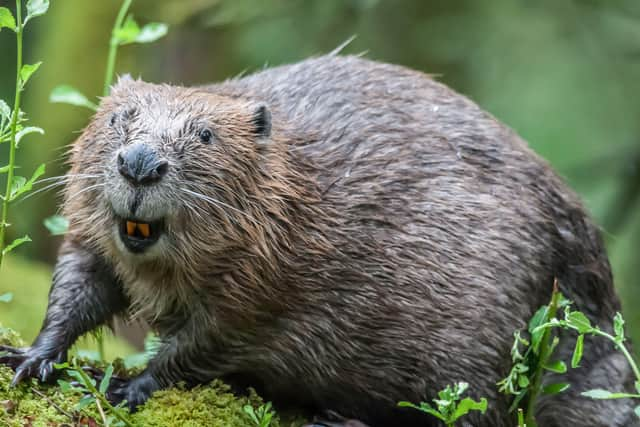Beavers set to return to Sussex ... after hundreds of years
and live on Freeview channel 276
The animals - valued for their fur and tail oil - were hunted to extinction during the reign of Henry V111.
But they are now to be re-introduced on the Knepp Estate at West Grinstead thanks to The Sussex Beaver Trial, a partnership led by Sussex Wildlife Trust and the rewilding project at Knepp.
Advertisement
Hide AdAdvertisement
Hide AdThere will be a re-introduction of two pairs of beaver in either late spring 2020 or in the autumn.


It has long been a dream of Knepp owners Charlie Burrell and Isabella Tree to see the return of beavers who are noted for their beneficial impact on flood and drought mitigation, and on biodiversity.
The beavers will be released under Natural England licence in two locations within a large enclosed area for a five-year period to see how they settle into and adapt to their new environment.
The beavers will have over 250 hectares of land, including extensive swathes of willow, available to them where they can roam and do what they do best – natural coppicing and natural flood management.
Advertisement
Hide AdAdvertisement
Hide AdBeavers are viewed as extraordinary hydrological engineers, able to build leaky dams and lodges, and create channels and deep pools.
This activity will provide natural flood management benefits within the Adur catchment, as well as maintaining a base flow of water in drought conditions.
Isabella Tree, co-owner of Knepp Estate said: “This is a dream come true for us. We know beavers are one of the biggest influences missing from our landscape. Not only are they masters of water management, they’re hugely beneficial to biodiversity. Insects, birds, aquatic plants, fish will all gain from the intricate habitats they create. I am longing for the day when I hear a beaver tail slapping on Hammer Pond.”
Fran Southgate of the Sussex Wildlife Trust said: “At least 80 pe cent of the UK’s natural wetlands have been damaged or destroyed in the past, and in Sussex it is probably closer to 95 per cent.
Advertisement
Hide AdAdvertisement
Hide Ad“Wetlands are some of the most biodiverse areas on the planet, and are fantastic carbon sinks, helping to buffer us against climate change too.
“Bringing beavers back to Sussex will start to show us what a healthy wetland should truly look like.
“These beaver re-introductions will use the natural instincts of a native animal as a tool for restoring important wetlands.
“Beavers are a great example of how keystone wildlife species - a species without which whole ecosystems collapse - help to reverse other declines in wildlife, as well as helping to reduce pollution and siltation, increase natural fish stocks and more.”
Advertisement
Hide AdAdvertisement
Hide AdNatural England chairman Tony Juniper said: “It is great to see Sussex getting beavers back into the countryside and the formation of new partnerships to support nature’s recovery.”
The beaver releases are being monitored as part of a national project, with advice from specialist ecologists.
Another licence has also been granted by Natural England for a beaver release at Valewood on the National Trust’s Black Down Estate.